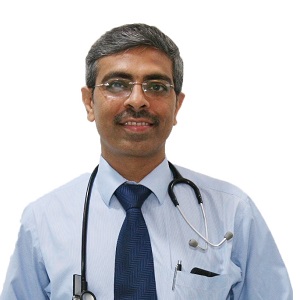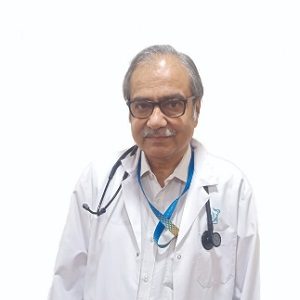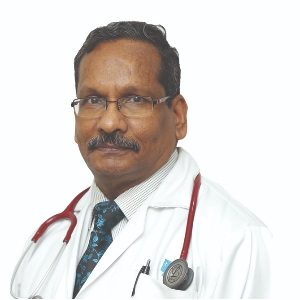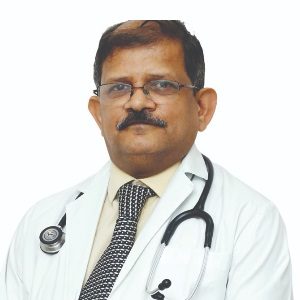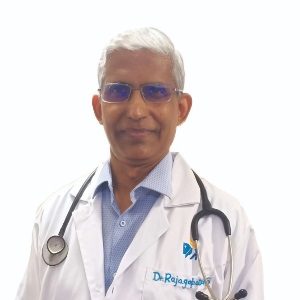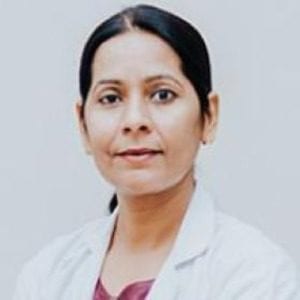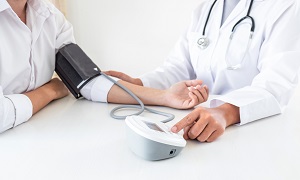Best Doctors in India for Hemodialysis
- Top Nephrologist | Apollo Hospital, New Delhi, India
- 20+ Years Experience
- Indraprastha Apollo Hospital, New Delhi
Profile Highlights:
- Dr. Gaurav Sagar is currently working as a consultant nephrologist at Apollo Indraprastha Hospital, New Delhi. He has over ten years of experience in renal medicine with a special interest in vascular access, kidney transplant, and critical care nephrology.
- Dr. Sagar has been a pioneer in practicing and promoting Interventional Nephrology in North India and was part of the team which conducted the first ABO-incompatible transplant in North India.
- Nephrologist, Chennai, India
- Over 43 years’ experience
- Apollo Hospitals Greams Road
Profile Highlights:
- Dr. Prakash K C is one of the senior Nephrologists from Tamil Nadu, with over 43 years of experience managing renal disorders.
- He provides consultation and a wide range of medical services like Ureteroscopy (URS), Kidney Transplant, Hemodialysis, etc. His team ensures a friendly environment for patients.
- Dr. Prakash is involved in many pieces of research and got his work published in periodicals and textbooks.
- Nephrologist, Chennai, India
- Over 29 years’ experience
- Apollo Hospitals Greams Road
Profile Highlights:
- Dr. B Subba Rao is one of the best Nephrologists in Tamil Nadu, with over 29 years of experience.
- Dr. Rao offers consultation and various services like Nephrolithotripsy, Hemodialysis, Hemodiafiltration (HDF), Percutaneous Nephrolithotripsy, CKD, Kidney Stone Treatment, Kidney Failure Treatment, etc.
- Dr. Subba Rao has been awarded the Vocational Excellence Award for his contributions to the field
- Nephrologist, Chennai, India
- Over 23 years’ experience
- Apollo Hospitals Greams Road
Profile Highlights:
- Dr. Rajeev Annigeri is a well-known Nephrologist from South India with 23 years of experience in the field of renal disorders treatment.
- He went under special training in Peritoneal Dialysis from the University of Missouri, USA.
- Dr. Annigeri ensures a fully supportive environment for the patients. The doctor provides many medical services like Adrenalectomy, Kidney Transplant, Hemodialysis, Kidney Surgery, Hemodialysis, etc.
- Nephrologist, Chennai, India
- Over 29 years’ experience
- Apollo Hospitals Greams Road
Profile Highlights:
- Dr. S Rajagopalan Seshadri is one of the best Nephrologists from Tamil Nadu, with over 29 years of experience.
- Dr. S Rajagopalan provides a wide range of medical services as a specialized Nephrologist/Renal Specialist.
- He is known for excellent patient care. Patients also visit Dr. Rajagopalan for other services like Proteinuria, Kidney Transplant, Hemodialysis, Nephrectomy, Percutaneous Nephrolithotripsy, CKD, Kidney Failure, etc.
- Nephrologist, Gurugram, India
- Over 20 years’ experience
- Manipal Hospitals, New Delhi
Profile Highlights:
- Dr. Suman Lata Nayak is one of Delhi’s most prominent Transplant physicians and was the founder of the Nephrology Department at the Institute of Liver and Biliary Sciences.
- Throughout her career, she has been actively involved in clinical research. Dr. Suman Lata Nayak’s research in the field of kidney transplantation, TB, and liver disease in patients, has made a significant impact on improving protocols in India.
Best Hospitals in India for Hemodialysis
Hospital Highlights:
- Apollo Hospitals is a private healthcare group in India, with its headquarters based in Chennai. Established in 1983 by Dr. Prathap C. Reddy, the group offers a wide range of medical treatments and services across various specialties.
- It is renowned for emphasizing innovation and utilizing cutting-edge medical technologies into patient treatment.
- Known as India’s first corporate hospital, Apollo Hospitals is often credited for pioneering the private healthcare revolution in the country.
- With clinics and hospitals located all throughout India, Apollo Hospitals is a nationwide healthcare organization. Its presence can also be found in foreign countries.
- Preventive health examinations, medical and surgical treatment, and diagnostic centres are just a few of the services that the Apollo group provides.
- The group has several centres of expertise, including Cardiac Sciences, Neurosciences, Orthopedics, Emergency Care, Cancer Care, and Organ Transplantation.
- City: Chennai, India
Hospital Highlights:
- RIMC is a multi-specialty hospital in a sprawling area of 36 acres located in Chromepet, Chennai, Tamil Nadu, India.
- The facility has 450 beds including 130 critical care beds, 9 operating rooms, modern reference laboratories and radiology services, and is conveniently located near road, rail and air transportation.
- RIMC is led and managed by world-renowned physicians committed to healthcare.
- RIMC offers the broadest range of clinical care, education, and research. The hospital offers state-of-the-art technology and modern treatment facilities designed to provide health care at an affordable cost.
- Rela Institute is driven by patient needs, comfort and confidence.
- City: New Delhi, India
Hospital Highlights:
- Fortis Hospital in Shalimar Bagh is a multi-super specialty hospital that strives to provide world-class patient care by leaving no stone unturned.
- Fortis, Shalimar Bagh, with 262 beds and a 7.34-acre footprint, provides the best level of medical care through its team of doctors, nurses, technicians, and management professionals.
- City: Bengaluru, India
Hospital Highlights:
- Established in 2007, the Apollo Hospitals Bangalore is a 300-bed multispecialty hospital situated in Bannerghatta Road, Bangalore.
- Equipped with the state-of-the-art technology, it is a leading hospital dedicated to providing healthcare needs to patients with compassion and expertise.
- It is the first hospital to have completed the highest number of Robot Assisted Heart Surgeries in India.
- Over the years, it has successfully conducted some of the rarest medical procedures such as spinal angiolipoma excision, autologous chondrocyte implantations, and tibial tuberosity shift with MPSL reconstruction.
- The Apollo Hospitals Bangalore has the reputation of performing the greatest series of airway stents in the country.
- Additionally, the hospital is known for providing comprehensive treatment in specialties such as gastroenterology, urology, gynecology, oncology, colorectal surgery, etc.
- The “The Minimal Access Surgery Centre” (MASC), one of Apollo Hospitals, Bangalore’s premier Centres of Excellence, is devoted to the use of minimally invasive surgical procedures.
- In 2013, THE WEEK-A C Nielsen, Best Hospital Survey ranked Apollo Hospitals Bangalore as the 2nd best multi-speciality hospital in Bangalore.
- City: Mumbai, India
Hospital Highlights:
- Gleneagles Global Hospital The 450-bed facility comprises of 17-stories, housing state-of-the-art infrastructure, and advanced medical care facilities.
- The hospital offers end-to-end clinical, surgical, and diagnostic services. It is equipped with a team of eminent medical professionals aided by qualified nurses and medical staff
- The Hospital offers advanced Endoscopic procedures, Hepatobiliary and Liver Surgeries, Surgical and Medical Gastroenterology, Bariatric Surgery, and Robotic surgery.
- The hospital is a center of excellence for Orthopedics, Joint Replacement, Knee Replacement, and Hip Replacement surgery.
- City: Hyderabad, India
Hospital Highlights:
- CARE Hospitals were established in the year 2000, by CARE Group.
- The multispecialty hospital has 435 beds, including 120 critical care beds, with an annual inflow of 180000 outpatients and 16,000 in-patients.
- The hospital provides specialty medical services in Cardiology, Cardiothoracic Surgery, Pediatric Cardiology, Pediatric Cardiothoracic Surgery, Neurology, Neurosurgery, Nephrology, and Urology.
- The hospital has the first dual source, 128 slice CT scanner (for high precision cardiac imaging) – the first of its kind in south India.
- The hospital offers a wide range of accommodation facilities for the convenience of its varied patient base, ranging from general wards to super deluxe rooms.
- City: Mumbai, India
Hospital Highlights:
- Fortis Hospital in Mulund is a 315-bed multi-speciality tertiary care hospital with five JCI accreditations that offers a wide variety of diagnostic and treatment services. The Fortis Hospital in Mulund delivers patient-centred treatment with cutting-edge technology, highly skilled and experienced surgeons, and paramedical staff.
- This institution houses Maharashtra’s largest multi-organ transplant centre. It is also the first heart transplant centre in western India to conduct 100 or more consecutive heart transplants in under four years. It is the only hospital in the city to have multi-organ transplants and has handled the youngest patient for angioplasty. Fortis Hospital Mulund now boasts the first advanced surgical robot in central Mumbai.
- Cardiology and heart surgery, urology, nephrology, neurosciences, orthopaedics, digestive care, emergency and critical care, and maternity care are among the services provided by the hospital.
- City: New Delhi, India
Hospital Highlights:
- Manipal Hospitals, Dwarka, is a super-specialty hospital in Dwarka, New Delhi, which is a part of Manipal Hospitals Group.
- The hospital aims to provide the best treatment on par with international standards at a fraction of the cost.
- Equipped with 380 beds, the hospital is also one of the new age hospitals which are equipped fully with state-of-the-art infrastructure, cutting-edge technology as well as the latest and advanced clinical practices. The hospital also has 13 modular Operation theatres with 118 beds which are solely meant for critical care.
- The hospital comprises internationally acclaimed doctors and highly professional and experienced hospital and medical staff who are able to provide preventive, therapeutic, and diagnostic services all under one roof.
- City: Chennai, India
Hospital Highlights:
- Located in Chennai, India, MGM Healthcare is a top multispecialty hospital that provides all medical services under one roof.
- Since its founding in 2019, MGM Healthcare has quickly become a leading national referral centre, creating several innovative flagship initiatives.
- MGM Healthcare combines next-generation medical and digital technologies to provide better patient results.
- With 12 centres of excellence, more than 400 inpatient beds, 100 intensive care unit beds, and 24/7 emergency care, MGM Healthcare leaves no chance in redefining the patient experience in Chennai.
- MGM Healthcare boasts 250+ expert doctors across 30+ departments, including Cardiology, Pulmonology, Neurology, Obstetrics & Gynaecology, and more.
- They house 12 specialized Centres of Excellence, including Neurosciences, Orthopaedics, and Multi-Organ Transplantation.
- Their team of doctors, nurses, and paramedics works together to give every patient individualized treatment.
Hospital Highlights:
- Lilavati Hospital & Research Centre is India’s premier multi-speciality tertiary care hospital and has been recognised as a global medical excellence centre.
- Lilavati Hospital & Research Centre has built an unrivalled level of trust with its patients over the years, thanks to a solid foundation that comprises cutting-edge facilities, the best medical competence, research, education, and charity endeavours.
- The hospital is quite proud of the fact that it now serves patients from all kinds of backgrounds, not just from the United States but from all around the world.
- The hospital has a total of 323 beds, one of the largest Intensive Care Units (ICUs), 12 Operation Theatres with modern amenities, over 300 consultants, and almost 1,800 personnel.
Hemodialysis
Hemodialysis is a process of filtering wastes and fluid from your body, after your kidneys are no longer healthy. Hemodialysis is one of the ways to treat advanced kidney failure and it helps one carry on an active life despite having failed kidneys.
With hemodialysis, one also needs to follow a healthy diet, take medications regularly as well as follow a strict treatment schedule. Although hemodialysis is a serious responsibility, you can work closely with a healthcare team rather than shouldering it alone. Dialysis can be done in a hospital or in your home as well. Based on your medical condition, it is always up to you and your doctor to decide, which option is best.
Purpose
Your doctor can help you determine when you should start hemodialysis based on several factors, which include your overall health, kidney function, signs and symptoms, quality of life and also your personal preferences.
Your doctor uses the estimated glomerular filtration rate, to measure how well your kidney is functioning and this helps in planning your treatment including when to start hemodialysis.
Hemodialysis helps your body control blood pressure as well as to maintain the proper balance of fluid as well as various minerals, like potassium and sodium in the body. Normally, hemodialysis begins quite sometime before your kidneys have shut down to the point of causing complications that can be life-threatening.
Diabetes, high blood pressure, blood vessel inflammation, kidney cysts are some of the main causes of kidney failure. Your kidneys can also shut down all of a sudden after a severe illness, a heart attack or complicated surgery, or any such serious problem. Sometimes certain medications might also cause kidney injury. Some people with severe long-standing kidney failure can opt for a different path, choosing maximal medical therapy, which is called maximum conservative management as well, instead of dialysis. Some can also go choose to go for a kidney transplant.
Preparation
Preparation for hemodialysis usually starts several weeks to months before your first procedure. For allowing easy access to your bloodstream, a surgeon will be creating vascular access. The access provides a mechanism for a small amount of blood to be safely removed from your circulation after which it is returned to you in order for the process of hemodialysis to work. The surgical access requires time to heal before you begin hemodialysis treatments.
There are three different types of accesses:
Arteriovenous fistula
A surgically created AV fistula, which is a connection between an artery and a vein, usually in your non-dominant arm. Due to its effectiveness as well as safety, this is the most effective as well as safe method.
Central venous catheter
If you require emergency hemodialysis, a plastic tube might be inserted into a large vein in your neck or near your groin. The catheter is for a temporary basis.
AV graft
If your blood vessels are found to be too small for creating an AV fistula, your surgeon may instead choose to create a path between an artery and a vein using a flexible, synthetic tube which is called a graft.
Procedure
During the treatment procedure, you sit or recline in a chair while your blood flows through the dialyzer, a filter that acts as an artificial kidney to clean the blood. At this time, you can read a book, watch a movie or even take a nap. If you receive it during the night, you can just sleep while the procedure is on.
Preparation
Starting
At first, two needles will be inserted into your arm through your access site, and taped in place to make it remain secure. Each needle is attached properly to a flexible plastic tube that connects to a dialyzer. Through one tube, the dialyzer filters the blood a few ounces at a time, which allows wastes and extra fluids to pass from your blood into a cleansing fluid which is called dialysate. Then, the filtered blood returns to your body, with the help of the second tube. The needles in your fistula or graft can be uncomfortable and most patients get used to this within some time. Talk to your dialysis care team and make sure you are comfortable during the treatment.
Symptoms
Keep in mind that you might be experiencing some symptoms like nausea or abdominal cramps. This is due to the fact that excess fluid is being pulled from the body, especially if you are having hemodialysis three times a week, rather than more often. If you feel too much discomfort, you can ask your care team to help minimize the side effects by taking measures like adjusting the speed of your hemodialysis, your medication or your hemodialysis fluids.
Monitoring
Finishing
When the hemodialysis is complete, the needles are removed from your access site. After this, a pressure dressing is applied for preventing bleeding. Your weight might need to be recorded once more. After this, you are free to carry on your usual activities, until your next session.
Results
If you had a sudden kidney injury, you might need hemodialysis only once in a short time, until they recover. If you had reduced kidney function before a sudden injury to the kidneys, the chances of full recovery back to independence from hemodialysis are quite less.
Three-times a week hemodialysis is quite common and according to a few types of research, it has been suggested that home dialysis is linked to:
- Increased well-being
- Better quality of life
- Reduced symptoms and less cramping, headaches as well as shortness of breath
- Improved appetite, sleeping patterns, energy level and the ability to concentrate.
Your hemodialysis care team will monitor your treatment to make sure that you are getting the right amount of hemodialysis to remove enough wastes from your blood. Your weight and blood pressure are monitored very closely before, during as well as after your treatment. About once a month, you will receive these tests:
- Blood tests for measuring urea reduction ratio and total urea clearance, for making sure how well your wastes are being removed from your body.
- Blood chemistry evaluation as well as an assessment of blood counts.
- Measurements of the flow of blood through the access during your hemodialysis.
Risks
Despite its benefits, hemodialysis can also cause a variety of health problems. Some of them include low blood pressure, muscle cramps, sleep problems, itching, anemia, fluid overload, bone diseases, high blood pressure, complications in the access site complications, high potassium levels, inflammation of the membrane which surrounds the heart, amyloidosis or depression.

